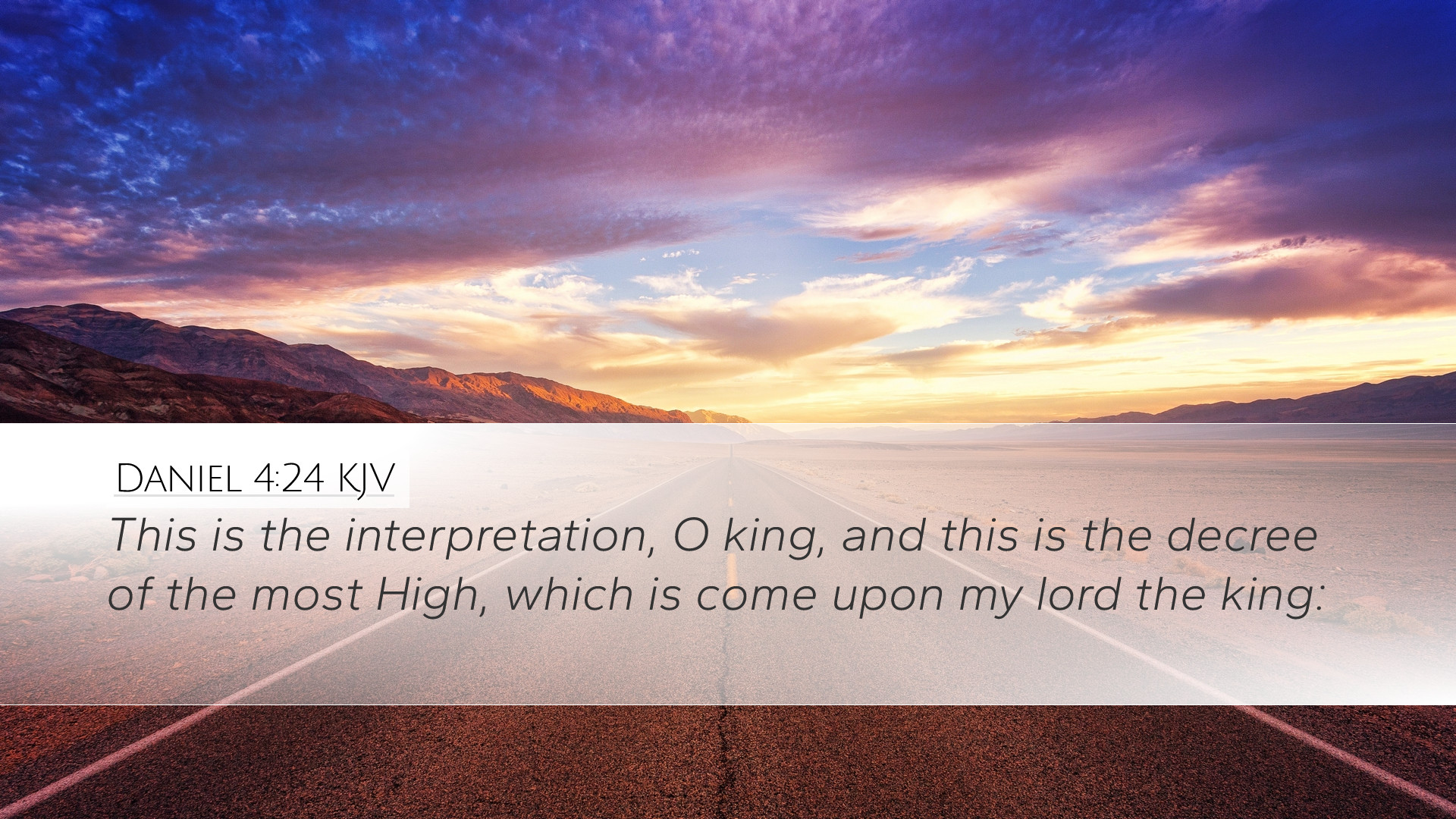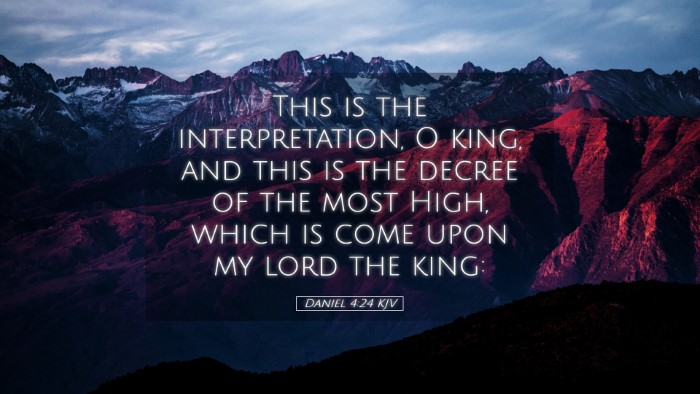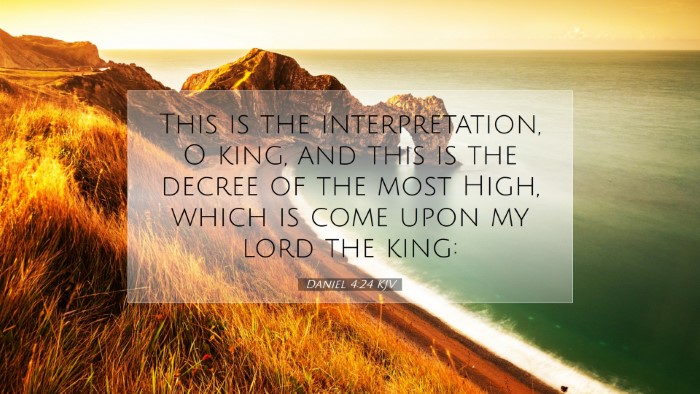Commentary on Daniel 4:24
Daniel 4:24 states: "This is the interpretation, O king, and this is the decree of the Most High, which is come upon my lord the king."
In this passage, Daniel conveys the message he has received from God regarding King Nebuchadnezzar’s dream. This verse encapsulates the shift from divine revelation to interpretation and serves as a pivotal moment that emphasizes God’s sovereignty over earthly rulers.
Contextual Background
The Book of Daniel is rich in prophetic visions and dreams, serving as both a historical account of Israel during the Babylonian exile and a theological exploration of God's sovereignty. In this chapter, Nebuchadnezzar dreams of a great tree that is cut down, symbolizing his impending judgment. Daniel, chosen as a prophet, is tasked with interpreting this vision.
The Decree of the Most High
Daniel clearly attributes the decree not to human authority but to the "Most High." This highlights a central theme in the Book of Daniel—the absolute sovereignty of God over the affairs of men.
- Sovereignty: God's decree emphasizes His control and oversight over all kingdoms and powers. As noted by Matthew Henry, the phrase reflects that even to the mightiest of kings, God has authority that transcends earthly dominion.
- Divine Judgment: Albert Barnes points out that this judgment is not arbitrary; it is part of God's plan to humble Nebuchadnezzar and bring him to repentance. It serves to remind the king of the temporal nature of power.
- Human Responses: Adam Clarke offers insights on the necessity for humility in leadership. He emphasizes that the recognition of God's supremacy should lead rulers to act with justice and mercy.
Interpretation and Implications
The interpretation given by Daniel signifies a moment of confrontation between divine authority and human pride. The king, who once viewed his empire as invincible, is faced with a humbling truth.
- Theological Implications: The passage reinforces the notion that God intervenes in history. The event serves as a warning to all who seek to exalt themselves beyond their station.
- Ethical Considerations: There is a call for ethical reflection on how one governs and exercises authority. Henry's commentary stresses that leaders should recognize their accountability to God.
- Hope and Restoration: Barnes notes that while the decree implies suffering, it also carries a promise of eventual restoration should the king repent and recognize God's sovereignty.
Application for Today’s Leaders
For modern pastors and theologians, this passage serves as a powerful reminder of the importance of God-centered leadership. The implications drawn from Daniel 4:24 can guide their ministry approach.
- Dependence on Divine Wisdom: As leaders navigate challenges, they should seek God’s wisdom, understanding that true authoritative insight comes from the Most High.
- Vision for Service: Leaders in the church are called to serve, not to dominate. Understanding that any service is ultimately under God’s authority invites humility.
- Engagement with the World: Just as Daniel engaged with Nebuchadnezzar’s culture, modern leaders are encouraged to interact with contemporary society thoughtfully and redemptively, echoing God’s kingdom values.
Conclusion
Daniel 4:24 encapsulates the vital theme of divine authority and human responsibility. The lessons gleaned from this passage encourage leaders to reflect on their conduct, affirming that God's decrees are not just historical events but timeless truths that resonate through time and call for a rightful response from every generation.


